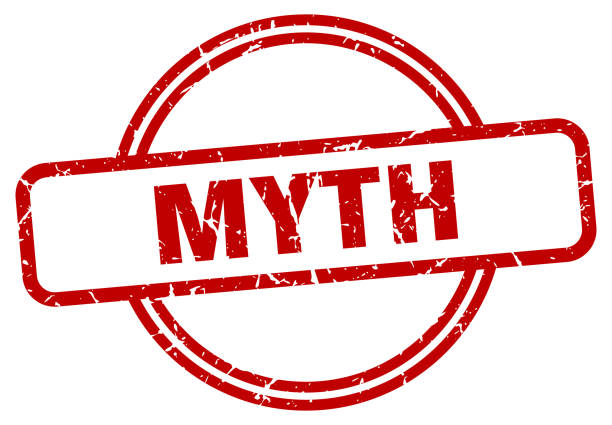Fitness Myths, Nutrition
How Much Weight is Safe to Lose from Detoxing
Do you want to lose weight quickly? Detoxing could be an appealing option. While there are numerous detox diets and programs that claim to help you lose weight quickly, it is critical to understand the safety and long-term viability of these procedures. In this article, we’ll look at the subject, “How much weight can you safely lose from detoxing?”
Detoxing involves removing toxins from your body, which can result in water weight loss and temporary weight loss. However, before embarking on any radical cleanse or restrictive diet, it is critical to proceed with caution and consult a healthcare practitioner.
Rapid weight reduction can be harmful to your health, resulting in muscle loss, vitamin shortages, and a drop in metabolism. Prioritizing a balanced and sustainable strategy for weight loss that includes good food, regular activity, and a focus on long-term habits rather than fast remedies is critical.
So, let’s go into the area of detoxification and figure out how much weight reduction is safe for your body and overall health.

Understanding Detoxification and Weightloss
Toxin elimination is the process of removing poisons from the body. It can be accomplished through a variety of means, including fasting, juicing, and adhering to particular detox diets. The goal of detoxing is to give your body a vacation from processed meals, alcohol, caffeine, and other potentially harmful drugs.
When you start a detox program, you may lose weight owing to the removal of extra water from your body. This initial weight loss may be deceptive, as it is not always indicative of fat loss. It’s critical to remember that detoxification is not a long-term or healthy approach to lose weight.

The Dangers of Rapid Weightloss
While it may be appealing to reduce weight rapidly, doing so might be harmful to your health. When you lose weight too quickly, you may lose both fat and muscle mass. This can result in a slowdown in metabolism, making it more difficult to maintain your weight loss over time.
Rapid weight reduction can also lead to nutrient shortages. Many detox diets are quite restricted and may deprive your body of the nutrients it requires to function correctly. This can result in weariness, weakness, and other health problems.
Prioritizing your overall health and well-being over fast cures or short-term results is critical. A balanced approach that combines a good diet, frequent exercise, and healthy lifestyle behaviors leads to long-term weight loss.

Healthy Weightloss Goals
When it comes to losing weight, it’s critical to create realistic and healthy goals. The standard advice for healthy and long-term weight loss is 1-2 pounds per week. Individual characteristics such as age, gender, and exercise level may influence this.
Slowly losing weight allows your body to acclimate and adapt to the changes, reducing the danger of muscle loss and vitamin deficiencies. It also raises the likelihood of long-term weight reduction maintenance.

The Role of Detox in Weightloss
Detoxing might help jump-start your weight reduction journey, but it should not be your only emphasis. Detox programs can assist you in losing excess water weight, reducing bloating, and establishing healthier behaviors. However, it’s vital to remember that long-term lifestyle adjustments are required for long-term weight loss.
Detoxing can be a terrific method to reset your body and mind, but it should be done in conjunction with a good diet, frequent exercise, and other lifestyle practices. It should not be viewed as a fast fix or a long-term weight loss strategy.

How Much Weight Can You Safely Lose from Detoxing?
The amount of weight you can safely shed through detoxifying is determined by a number of factors, including your beginning weight, body composition, and overall health. It’s vital to remember that losing weight isn’t the only indicator of progress or success. Other positives to consider include increased energy levels, better digestion, and more mental clarity.
As previously stated, the usual recommendation for healthy and long-term weight loss is 1-2 pounds per week. This varies depending on individual factors, but it’s critical to avoid severe or quick weight loss strategies that can jeopardize your health.
Factors That Affect Weightloss During Detox
Several factors can impact how much weight you lose throughout a detox program. These are some examples:
Starting weight: Individuals with a higher starting weight may have more considerable weight loss at first.
Body composition: Your body’s proportion of muscle mass to fat mass can influence how much weight you shed during a detox.
Metabolism: People with higher metabolisms may burn calories more efficiently, resulting in greater weight loss.
Duration of the detox program: Longer detox programs may result in more weight loss, but they must be done under professional supervision.
Caloric intake: The number of calories consumed throughout a detox program can have an impact on your weight loss. Extremely low-calorie diets can result in quick weight loss, but they should only be attempted under medical supervision.

Keeping a Healthy Balance Between Detox and Weight Reduction
While detoxing can be an important part of your weight reduction journey, it is critical to maintain a balanced approach. Prioritize your complete health and well-being rather than just weight loss.
A balanced approach to detox and weight loss comprises the following steps:
Balanced nutrition: Consume a variety of nutrient-dense foods, focusing on fruits, vegetables, whole grains, lean meats, and healthy fats.
Hydration: Drink plenty of water throughout the day to help your body’s detoxification processes.
Regular physical activity: Incorporate exercise into your regimen to increase metabolism, muscular mass, and general health.
Getting adequate sleep: For optimal health and weight management, aim for 7-9 hours of excellent sleep per night.
Stress management: Incorporate stress-reduction practices into your regular routine, such as meditation, yoga, or deep breathing exercises.
Weightloss Detox Tips That Are Both Safe and Effective
If you’re thinking about doing a detox program for weight reduction, here are some guidelines to follow to ensure a safe and effective experience:
Consult a healthcare professional: Before beginning any detox program, seek advice from a healthcare professional who can provide assistance and assure your safety.
Select a well-rounded program: Look for a detox program that includes a balanced diet, encourages regular exercise, and emphasizes overall wellness.
Avoid severe or restrictive diets: Avoid detox programs that restrict or eliminate vital dietary groups. This can result in vitamin shortages and other health problems.
Pay attention to your body: Take note of how your body feels during the detoxification process. If you notice any negative effects or feel unwell, stop immediately and seek medical attention.
Keep a long-term perspective in mind: detoxification is not a fast fix. For long-term success, focus on developing healthy behaviors that you can maintain.

Common Myths About Detox and Weightloss
There are various fallacies about detoxification and weight reduction that might be deceptive. Let’s disprove a few of the most prevalent ones:
Myth: Detoxing on its own results in long-term weight loss. Reality: While detoxing can help jump-start better habits, long-term weight loss demands a long-term commitment to a balanced lifestyle.
Myth: Detoxes are a panacea for all health problems. Reality: While detoxing might be useful, it is not a panacea for underlying health issues. Consult a healthcare professional for an accurate diagnosis and treatment.
Myth: Rapid weight loss is always beneficial. Reality: Rapid weight loss can have negative health consequences such as muscle loss, nutrient shortages, and a slowdown in metabolism.
Myth: Detoxing is required to remove toxins from your body. The truth is that your body has a natural detoxification mechanism that includes your liver, kidneys, and lymphatic system. These processes are aided by a healthy lifestyle.
Myth: Detoxing is a one-time procedure. Reality: Detoxification should be viewed as a continual commitment to your health and well-being. It is critical to include healthy behaviors in your everyday routine.
Conclusion
Through my own experience, I know that detoxing can be an important part of losing weight, but it shouldn’t be the only thing that is used. Being careful, talking to a doctor, and committing to a healthy, long-term weight loss plan are the most important things that you can do.
When figuring out how much weight is safe to lose through cleansing, health and well-being should come first. I now know that the best way to lose weight and keep it off is to make long-term changes to my lifestyle, like eating healthier, working out regularly, and adopting healthy eating habits.
It’s important to stop focusing on the number on the scale and see the other benefits of taking a more complete approach to health and fitness. I’ve learned that real success isn’t just losing weight; it’s also making your health and way of life better in general.


